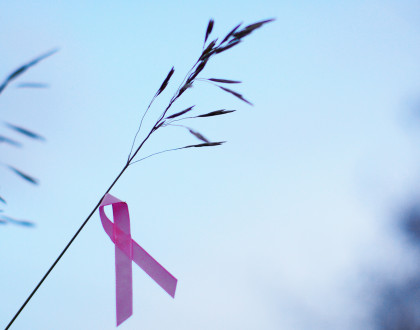Why You Are At Risk for Breast Cancer

“Am I at risk for breast cancer?” is a question that many women ask themselves and their healthcare providers. One out of 8 women are at risk of being diagnosed with breast cancer at some point in her lifetime and determining that risk is complex. The uncertainty women experience speaks to the mysterious nature of the disease, which has led scientists to research possible causes outside of a woman’s body.
Breast Cancer and Estrogen
We know for certain that as a woman ages, her chances of developing breast cancer increases. The majority of breast cancer is found in women over 50 who have no known risk-factors other than growing older. On the other hand, breast cancer is rather rare- even in women with one or more risk-factors. We also know that there is a link between breast cancer and estrogen produced in the body, which stimulates mammary tissue and in excess can heighten a woman’s propensity for developing tumors. This explains why women who begin menstruation before age 12, start menopause after age 55, become pregnant for the first time after age 35 or who never become pregnant are more likely to be diagnosed with breast cancer. Still, the lack of full understanding around what causes breast cancer has led researchers to investigate the impact of environmental exposures across a woman’s lifespan. More specifically, scientists are concerned with chemicals that mimic estrogen called endocrine disrupting compounds, or EDCs.
What are Endocrine Disruptor Compounds, or EDCs?
According to the National Institute of Health, “Endocrine disruptors are chemicals that may interfere with the body’s endocrine system and produce adverse developmental, reproductive, neurological, and immune effects in both humans and wildlife.” The presence of EDCs is pervasive and can be found in products that we come in contact with everyday such as:
- plastic bottles
- metal food cans
- detergents
- flame retardants
- food
- toys
- cosmetics
- pesticides
The Silent Spring Institute (SSI), an environmental research organization focusing on preventable causes of cancer believes that “given the role that hormones play in the development of breast cancer…other hormonally active compounds—including synthetic estrogens in consumer products and pesticides, natural phytoestrogens in food, and other compounds that affect hormone signaling—deserve careful study.” Studying the carcinogenic effects of EDCs in humans is difficult, so it is likely that progress will be made slowly. Although researchers are still working to gain clarity around the connection between these harmful substances and breast cancer, all people could benefit from limiting their contact.
What can I do?
To lower your breast cancer risk and reduce what SSI calls your “body burden” of contaminants, there are several actions you can take. Since a large amount of compounds identified as causing breast tumors in animals have been present in consumer products or as contaminants in food, SSI lists the following top ten tips:
1. Leave your shoes at the door to avoid tracking pesticides and other chemicals inside.
2. Use less toxic methods to control pests at home such as sealing cracks and storing food tightly.
3. Choose organic food as much as possible.
4. Opt for fresh instead of canned foods.
5. Use glass, stainless steel, cast iron, and ceramic instead of plastic or nonstick cookware in the kitchen.
6. Choose natural fibers for furnishings and clothing to avoid flame retardants.
7. Keep dust levels low and use a vacuum with a HEPA filter.
8. Make your own cleaning supplies with baking soda, vinegar, and olive oil.
9. Read labels to avoid “fragrance,” “phthalates,” “antimicrobial,” and “parabens” in personal care and household products.
10. Join with your neighbors and friends to take action in your community and our nation to advocate for preventative education, care and research.
To receive reminders to schedule your yearly mammogram, annual physical, or to perform your monthly breast self-exam, click here to enroll in YW Boston’s healthy text reminder service.
